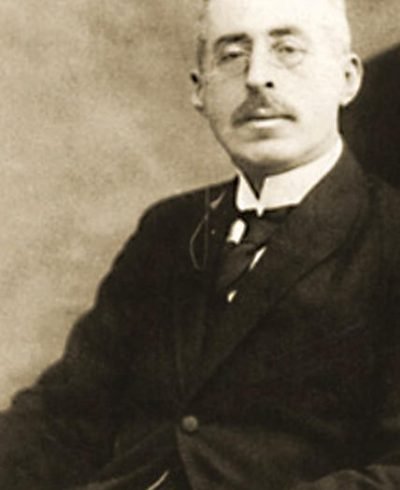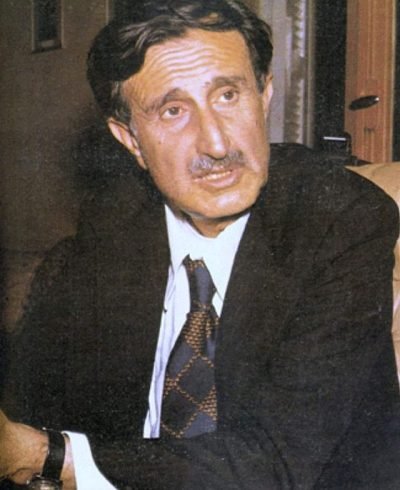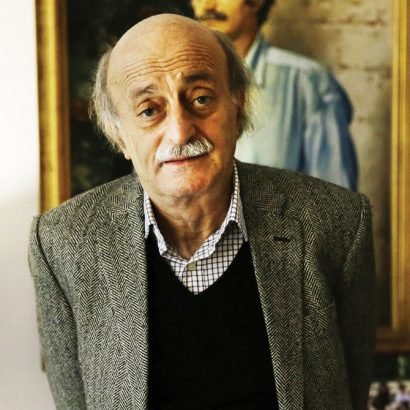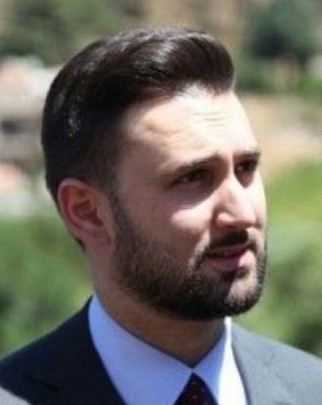




The ancestor who is enrolling in this family is Prince Ali BashaJnbulad (known as Braveheart or iron heart) who was the governor of Aleppo for the Ottomans in the early sixteenth century, and revolted them, and an alliance with Prince Fakhr-al-Din II Amir Mount Lebanon, and was executed in 1511.
Grandson Jnbulat bin Said sought to refuge to Mount Lebanon in 1530 and founded the family Jumblatt Druze. And Ali Pasha Jnbulad was a Sunni Kurdi. by which the Druze door had closed before resorting to his grandson, Mount Lebanon, hundreds of years and with all the respect and appreciation of the Kurds and this is not to reduce their prerogative, but just the knowledge and informational purposes only.
Originally, the family roots came from the Janboulad al Kirdi al Ayoubi, known also as Ibn Arabi, governor of the MaaratNaaman country in Syria. But the first grandfather is Janboulad Ibn Kassem al Kirdi al Kaisari, known as Ibn Arabou (1530-1580), governor of Aleppo and owner of Maarat, Kalas and Iizaz. He became famous as he had succeeded in bringing stability and prosperity to his country.
The grandfather He had four sons:
Hussein who had Mustafa, Ahmed who had Ali, Habib who had Darwish and Haidar who had Mohamad. After his death, Hussein and Habib disputed over who should take the reign and it was finally decided that it should go to Hussein (Hussein Bacha Janboulad), portrayed later as the wisdom and the courage. The reign of the country witnessed many descendants of the Janboulad family, among which, Janboulad Bacha Ibn Kassem Bin Ahmad Jamal el Dine Bin el Emir.
Arabcha, known as Ibn Arabou, leader of the Kurdes in his country, father of Jaafar Bacha and Hussein Bacha who became the Emir of the Emirs in Aleppo and entered in conflict with his brother Habib and occupied his territory Kalas by force. He was killed by the order of Ottoman Prime Minister, Sanan Bacha (al sodr al aazam) in 1605… In addition, Ali Bacha Ibn Ahmad, governor of BekaaAzizi and later of Kalas, Aintab, Maarat, Adana and Anwa (acquired by force), ordered in 1607 a currency with his name and made an alliance with Emir Fakhr el Dine against Ibn Sifa. He was killed in 1611, by the order of the Sultan… and Mustafa Bacha who married one of the Ottoman Sultan daughters, was appointed commander of the Ottoman Navy but was killed in 1636.
After the death of Ali Bacha, the family lost its power grip on the county and some of its members flew the territory and it is said that in 1630, Janboulad Ibn Said Ibn Mustafa Ibn Hussein Bacha Ibn Janboulad with his only son Rabah, decided to settle with some of his men in Beirut. When the news of his arrival spread, he was urged by the people of the Jabal (mountain or actually the Chouf) who visited him, to settle in the area, which he accepted and choose Mazraat el Chouf for this purpose. Upon his arrival, he was greeted by the Emir Fakhr el Dine who allocated him the title of sheikh and appointed him governor and commander of KiriatShkifArnoun… under the command of Sheikh Abou Nader el Khazen (general commander of the army of the Emir). Since then, the Janboulad name became Jumblat. In 1640, he died and his son Rabah took over his father and strengthened, during his reign, the friendly relation between the Jumblat family (druze) and the Khazen family (maronite).
Rabah had 3 sons: Ali, Fares and Sharaf el Dine.
Ali married the daughter of Sheikh Kabalan el Kadi al Tannoukhi, one of the grand Sheikh of the Chouf. Upon Sheikh Kabalan death (1712), Ali Jumblat took over his father in law and became the Sheikh of the druzes. He was appreciated by the people for his generosity, fairness and mainly, his tolerance. During his reign he had tolerated the building of many churches and have even contributed with his personal support. In this spirit, he has donated upon the request of the Catholic Patriarch a big piece of land of the Melkite Catholic Church in Iqlim el Kharoub, where a big convent known as the Deir el Moukhales, has been built. Sheikh Ali governed with a lot of nationalism and patriotism and was very keen in helping people in their needs, no matters their religion.
After his death, his son Kassem took over the reign but his days were not as bright as his father’s, due to the presence of the Ottoman Governor Ahmad Bacha al Jazzar who imprisoned him in his jail in Akka. Kassem had 3 sons: Hassan, Bachir and Ismail. After Kassem’s death, his son Sheikh Bashir took over and he allied himself with Emir Bashir al Chehabi al Thani. During his reign, he has continued helping people and friends, due to his close ties with the Emir, and used to pay frequently from his pocket, the dues (tax) of the Emir, which granted him with the appreciation of the “Pillar of the Sky”. At this time, he has also built in Moukhtara a Khalwe. Years later, the relation between the two Bashirs worsened and Sheikh Bashir Jumblat was condemned to death at the age of 50 with Sheikh Amine Imad in Aka in 1825. Much of his properties were destroyed and ransaked. After these sad events, Said Ibn Bashir took over the reign of the family who was confronted again with another sad events that took over between the Druzes and the Christians in the Chouf. He died on May 11th 1861, after trying in vain to stop the fighting between the two communities.
Said had two sons: Nassib and Negib.
Nassib was appointed Caimacam of the Chouf, but he died later and his brother’s son Fouad took over, under the French mandate, the post of Caimacam, since Nassib had no children. Fouad was also assassinated before the beginning of the 1925 revolution and his wife “Sit Nazira” took the full responsibility of her family leadership, and through her wisdom, has avoided further problems to the country. In addition, she has raised in dignity her two children: Kamal and Linda.
